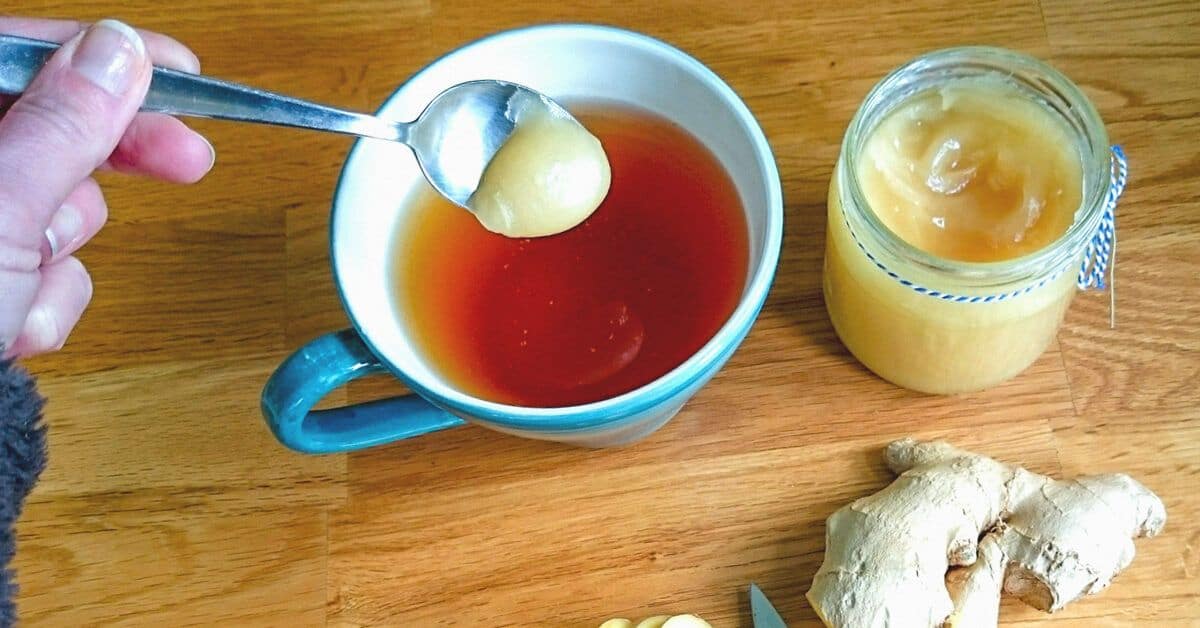
Natural Home Remedies for Laryngitis – Healthline
We include products we think are useful for our readers. If you buy through links on this page, we may earn a small commission. Here’s our process.
Healthline only shows you brands and products that we stand behind.
Did you wake up this morning with a croaky or hoarse voice? Chances are you’ve got laryngitis. Laryngitis happens when your vocal cords become inflamed from overuse, irritation, or infection. This inflammation causes distortion in your voice.
Just one night of spirited cheering (or yelling at the TV) during football season can trigger laryngitis. It can also be triggered by a nasty cold or flu.
The primary symptom of laryngitis is hoarseness. Thankfully, if you’re without symptoms of a more serious condition, there’s generally no need to rush to a doctor or healthcare professional. You can treat your symptoms of acute laryngitis at home with all-natural remedies and teas.
Laryngitis may cause symptoms such as hoarseness or a sore throat.
Typically, symptoms will clear up on their own within 1 or 2 weeks, and there’s generally no need to rush to a doctor. In many cases, you can treat your symptoms at home, with all-natural remedies and teas.
Throat lozenges help add moisture to your throat and may relieve pain. They can be medicated or nonmedicated and may assist with numbing pain, killing germs, or reducing redness.
Children under 4 years old shouldn’t be given lozenges.
When you have laryngitis, your vocal cords are swollen and irritated. They need time to heal. Try to avoid situations that require a lot of talking or shouting so you can rest your voice.
If you have to talk in a meeting or in front of a group, avoid the natural temptation to strain your voice further to be heard. Try calling into a speaker phone that can be turned up or using another amplifying device.
Use your voice as infrequently as you can. Try and avoid whispering as this can put additional strain on your larynx.
You can soothe a sore and irritated throat with warm salt water. Mix salt with warm water, take a sip into your mouth and gargle it around the back of your throat, then spit it out.
Repeat as often as necessary.
Breathing dry air can irritate your throat and contribute to inflammation of your vocal cords. This is especially common in the winter when heating units pump dry air into your home and office. A humidifier or vaporizer will add healing moisture to the air and help loosen phlegm.
It’s important to regularly clean humidifiers.
If you don’t have a humidifier, you can leave bowls of water out to add moisture to the air.
The ancient Greek physician Hippocrates recommended a drink called
It’s made by mixing fermented vinegar, honey, water, and other herbs and fruits.
But more evidence is needed to confirm if apple cider vinegar is effective as a remedy for sore throats and laryngitis.
There’s nothing more soothing for an irritated throat than a warm cup of tea. Plus, tea can do a lot more than soothe. Studies suggest compounds found in teas such as green tea are believed to have anti-inflammatory, antibacterial, antiviral, and antifungal properties.
Supercharge your tea with the healing powers of honey.
Slippery elm tea is made from the ground and dried bark of the slippery elm tree. It’s long been used in Eastern and Native Indian herbal medicine to treat inflammation of the upper airways.
It may be useful for soothing a sore throat, but more evidence is needed.
Add lemon to your tea for an extra immune boost.
Ginger root has many health benefits.
But if taken in large quantities, ginger may also cause unwanted side effects such as irritation to your throat and mouth.
Essential oils contain the natural chemicals that give plants their essence (smell and flavor). Eucalyptus tree products are also found in many over-the-counter medications, including lozenges and creams such as Vicks VapoRub.
Studies suggest eucalyptus oil may have antimicrobial properties against both bacteria and viruses.
But more research is needed to determine how useful eucalyptus oil may be.
Throughout history, many different cultures have used garlic for the treatment and prevention of disease.
Studies suggest that garlic supplements may reduce symptom severity and duration of illness as well as the number of colds and flu you experience.
But more research is needed to determine efficacy of garlic.
Vinegar has been used for thousands of years to fight infections.
But more research is needed to determine if gargling with diluted vinegar will help the symptoms of laryngitis.
When you’re sick, it’s always a good idea to drink plenty of fluids. This is also true when you have throat irritation. Water, juice, clear broth, and tea will help keep you hydrated, loosen phlegm, and flush out mucus.
Warm liquids, such as tea and soup, can help ease congestion by increasing the flow of mucus. But you should avoid any liquids that contain caffeine, which can cause dehydration.
While your voice is healing, try to stay away from the following:
There are a number of potential causes for laryngitis, including viral infection. Coronavirus disease 19 (COVID-19) is caused by a respiratory virus known as
COVID-19 can cause a variety of symptoms and vary in severity. Not everyone with laryngitis will have COVID-19, and not everyone with COVID-19 will experience laryngitis.
The most common cause of laryngitis is a viral infection such as a cold or influenza. In some cases, laryngitis can also be caused by other factors such as damage to your larynx, a fungal or bacterial infection, allergies, or irritation from reflux.
The symptoms of viral and bacterial laryngitis may be similar. Those with laryngitis caused by a virus may have other symptoms of a cold or flu.
Laryngitis caused by a bacterial infection is less common, but possible. If laryngitis is caused by a bacterial infection such as strep throat, it may be accompanied with symptoms such as swollen red tonsils that may have streaks or patches of pus.
Depending on symptoms, a doctor may take a throat swab for testing to determine if your laryngitis is caused by a viral, bacterial, or fungal infection.
Acute laryngitis typically gets better on its own in about a week. The inflammation leaves the area raw, and it’s easier to get an infection. Some people’s laryngitis is caused by a viral infection (such as a cold) or overuse of their voice, which means that antibiotics won’t help.
If you’re a singer or someone who absolutely needs to use their voice, a doctor may prescribe corticosteroids, which sometimes work to reduce inflammation in your vocal cords.
If your hoarseness lasts more than a couple of weeks, you may have chronic (long-lasting) laryngitis. Chronic laryngitis should be investigated by a doctor because it could have an underlying cause, such as acid reflux or a bacterial infection.
Last medically reviewed on May 9, 2023
Our experts continually monitor the health and wellness space, and we update our articles when new information becomes available.
Current Version
May 9, 2023
Written By
Corinne Osborn
Edited By
Yvette Brazier
Medically Reviewed By
Megan Soliman, MD
Copy Edited By
Copy Editors
Sep 28, 2022
Written By
Corinne Osborn
Edited By
Elizabeth Pratt
Medically Reviewed By
Nicole Aaronson, MD, MBA, CPE, FACS, FAAP
Copy Edited By
Kit Hitchcock
VIEW ALL HISTORY
Share this article
OUR BRANDS

